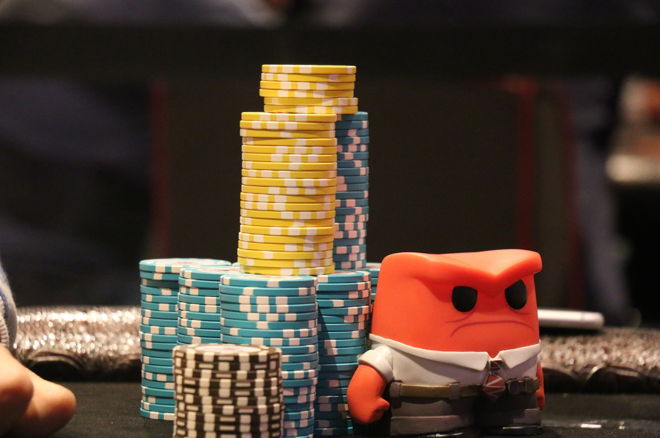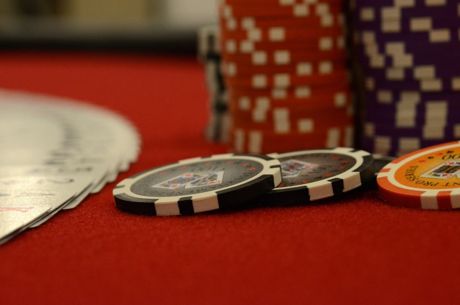Working to Win: The Business of Professional Poker

People often wonder how a person can make a living at poker, a game involving elements of chance. On the outside, some think of dark smoky back rooms, or at the very least a table full of sharks hustling a drunk tourist out of his vacation funds. The simple fact is neither of these scenes much resemble the reality of what most professional poker players experience every day.
This article will put into perspective the business side of professional poker, so that misconceptions can be tossed aside. Professional players should take heed of this article��s focus on the necessity of approaching your line of work like a business owner.
Risk versus reward and the direct pitting of skill sets against competition is the backbone of the journey that we all take in the professional world. Many realize this but most who are employed by others or who own their own businesses do not. The relationship between the various skill sets of providers and businesses will determine their success in the marketplace. This equation regulates a district manager��s prospective rise in the company, an accountant��s ability to be fortuitous, as well as a poker player��s ability to profit continuously over the long term.
When an accountant prepares the return of one of his or her clients, a restaurant owner serves a meal to a customer, or a poker player sits down at a table, they are all directly pitting their skill set against that of their competition. The accountant and the restaurant owner do not feel the victory or taste the sting of defeat in their pocketbooks for many weeks or months. Professional athletes and poker players feel the immediate financial gratification of success or the disappointment of failure as it is right in their face.
The accountant and restaurant owner must abide by the same direct laws of conflict and competition, only the outcome is delayed. Four out of five small businesses fail within the first five years of operation. The primary reason for this is that the provider of the good or service was inferior to their competition and their product delivery over the long run. A hard pill to swallow, but true nonetheless.
Meanwhile poker players are forced to realize their mistakes right away as their bottom lines are affected immediately. Ultimately, winning this competition of skill sets results in promotion for the accountant, high profit and a successful business for the restaurant owner, and a high hourly win rate for the poker player. The fundamental route getting there was the same �� be better than your opponent or competition in the marketplace.
One argument to my theory is that the poker player gambles when competing with his opposition, while the business owner does not. Au contraire! Again, the two paths to success or failure are still at their essence the same.
Imagine a professional, seasoned accountant being pitted against a beginning, uneducated accountant. Whoever provides the better service is granted the fee in this scenario. It is obvious that the experienced accountant will more often save the client more money and provide a better service than the weaker counterpart.
Every so often, though, the rookie accountant will be handed a slam dunk of a client, or the weak restaurant owner will be gifted a giant group of easy-to-please, high-spending customers. The gambling aspect of these careers is present, it is just as not as ��in your face�� as it is in poker. In the long run, the overall skill and experience level of the superior service providers will lead them to prevail against weaker competition in the free market. This equates to the better provider of ��poker skill�� in the poker room continuously making money off the weaker competition.
For professional poker players and people in the business world, we must all strive for good lifestyle habits in and out of the ��office.�� Firstly, have hobbies outside of the workplace. These should be completely outside of the casino/office walls. Secondly, do not bring your work home with you. This can be hard for us all, but it is of the utmost importance. Finally, it is imperative to take your success seriously by studying and constantly striving to be more educated than your competition.
In the end, professional poker is a business, no different in its essence than other professions. We all take risks, whether they are visibly in your face like a pot being pushed in your direction or to your opponent, or hidden behind walls of company financial statements. We all make the best living that we can while trying to avoid the ��grind�� or the ��rat race.��
As for me, I have not ��worked�� a day in 10 years. But I��ve approached my ��business�� as though it were work in the same professional way every single day.
Jason Bloom is a professional poker player of 10 years playing in mid- to high-stakes cash games in California, Las Vegas, Florida, and Belize. He writes about his play and other aspects of the poker world at The Poker Politico.
Want to stay atop all the latest in the poker world? If so, make sure to get PokerNews updates on your social media outlets. Follow us on Twitter and find us on both Facebook and Google+!









